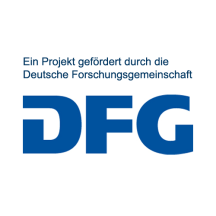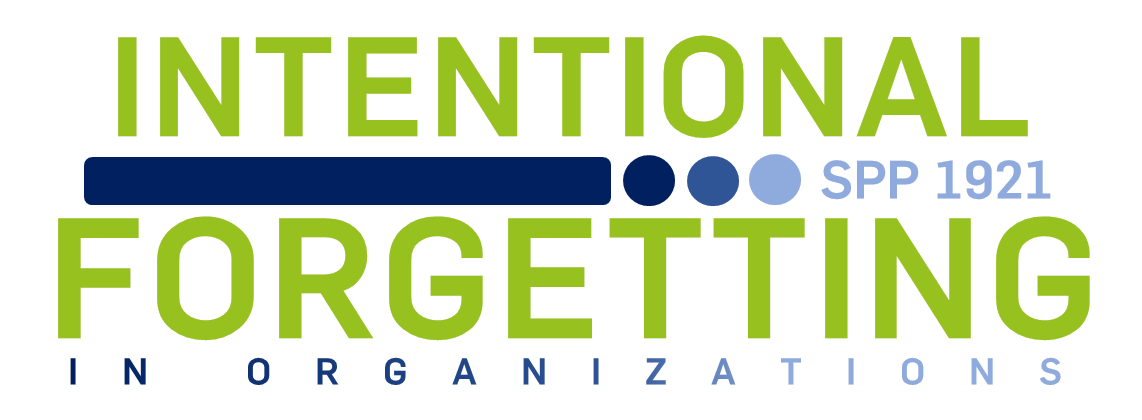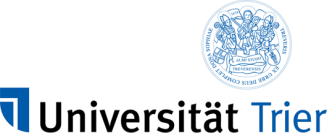
Adaptives Vergessen durch emergente Wissensstrukturen in sozio-technischen Systemen
2016 - 2019: Adaptive Prozess- und Rollengestaltung in Organisationen: Spezialisierung, Systemresistenz und Informationskapazität
- What is this project about?
New developments (e.g. digitization) are leading to more strongly integrated work processes and to larger complexity. In order to ensure an effective, efficient and disruption-resistant working method, we ask how roles and processes in teams can be coordinated and adapted to varying situation. AdaptPRO addresses this question under the aspect of understanding as an optimal distribution of knowledge and tasks between the members and the digital systems
- What are the results of the project so far?
Phase I focused on the development and formalization of an interdisciplinary IF model through function sharing in socio-digital teams. This model was tested, validated and evaluated in social and agent-based teams/ systems in laboratory, field and simulation studies.
An increase in information processing capacity (IPC) through distributed knowledge (specialization) was confirmed in experiment and simulation.
The development and testing of a new interdisciplinary simulation and experiment platform in which team cognitions and task characteristics can be manipulated and human test persons and intelligent agents can interact directly with each other was tested in first experiments.
- What are the objectives of the project?
he project examines how knowledge structures can be established that (1) lead to a distribution of knowledge without capacity overload, (2) ensure system resistance and (3) ensure trust in the division of functions in the socio-digital team.
To this end, the interdisciplinary forgetting model for the design of socio-digital function sharing developed in Phase I is extended as an intentional adaptation process and simulation-based application-oriented design and development measures are derived.
Based on the new simulation and experimental platform in serious game format, the failure and reorganization of socio-digital function division in team experiments as well as the effects of delegation, meta-knowledge about the agent & IVK in socio-digital teams will be investigated and evaluated. Here the view of social actors (bounded rationality) and digital actors in the agent-based simulation model is of interest. Especially the empirical experimental data allow a differentiated modelling of social actors in decision-making situations and in dealing with support systems.
The development of an instrument for status analysis and the design of socio-digital division of functions in organisations is also a further goal.
- How can organizations use the results?
The interdisciplinary forgetting model developed in the framework of AdaptPRO can be used by organisations in perspective to design socio-digital knowledge systems. It can be used to support socio-digital teams to adapt their information and knowledge systems and thus to adapt their roles and work processes to the situation and thus, depending on the needs, to find an optimal balance of shared and distributed knowledge.
Furthermore, we develop an instrument for the description, design and evaluation of socio-digital function sharing and the associated intentional forgetting in organisations. This status analysis helps organizations to implement their teams of social and digital actors more effectively and to counteract possible dangers of function sharing (fear and loss of trust due to the loss of tasks (features) or delegation of processes).
Project team
| Prof. Dr. Ellwart, Thomas |

|
Faculty I - Psychology | Applicant |
ORCID ResearchGate Google Scholar |
ellwart@uni-trier.de |
| Prof. Dr. Antoni, Conny H. |

|
Faculty I - Psychology | Applicant |
ORCID ResearchGate Google Scholar |
antoni@uni-trier.de |
| Graf , Benedikt, M.Sc. Psych. |

|
Work, Industrial and Organisational Psychology | ResearchGate | graf@uni-trier.de | |
| Dr. Müller, Rebecca |

|
Work, Industrial and Organisational Psychology | ORCID ResearchGate | muellerre@uni-trier.de |
| Prof. Dr.-Ing. Timm, Ingo |

|
Faculty IV – Business informatics | Applicant |
ORCID ResearchGate Google Scholar |
itimm@uni-trier.de |
| Dr.-Ing. Berndt, Jan Ole |

|
Faculty IV – Business informatics | Co-responsible |
ORCID ResearchGate Google Scholar |
berndt@uni-trier.de |
| Reuter, Lukas, M.Sc. |

|
Faculty IV – Business informatics | ResearchGate | reuter@uni-trier.de |
Ehemalige Mitarbeiter/-innen
| Dr. Ulfert, Anna-Sophie |

|
ORCID ResearchGate |



